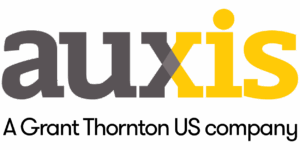As indirect taxes become a leading revenue stream for governments worldwide, navigating the wealth of complex and country-specific tax regulations is more challenging than ever for companies that compete on the global stage. With robust technical capabilities, best practices, global tax experience, and a deep understanding of industry and business issues, the right tax preparation outsourcing partner can help you manage risk with exemplary execution.
In this blog, we will examine what tax processes are typically good candidates for outsourcing versus retaining internally based on our decades of experience in the shared services and finance outsourcing space.
Even though traditional accounting functions such as Accounts Payable, Accounts Receivable and General Accounting are more common candidates for outsourcing, the tax function also involves many repetitive, transactional processes that should lend themselves well for outsourcing with the right migration approach and partner.
How tax preparation outsourcing services can improve the finance function
In today’s world, taxation is not just about traditional, direct sources like profits, income, and wealth – it’s increasingly focused on indirect tax streams like transactions, ;distribution, and production.
As government reliance on indirect tax revenue increases, expanding into new markets often means grappling with fast-changing regulations and intensive scrutiny against indirect ;tax fraud – demanding new levels of governance, accountability, and transparency for compliance.
For instance, Value-Added Tax (VAT) – the most popular form of indirect tax – now raises about 20% of tax revenues globally. VAT is levied on consumers of goods and services throughout the supply chain, rather than companies selling them.
In some countries, VAT revenue is even greater. For example, in Chile, VAT represents 40% of total tax revenue.
As a result, tax authorities are requiring greater disclosure of transaction tax data as part of tax-related electronic invoicing mandates in Latin America and other parts of the world, as well as insight into how organizations manage indirect taxes.
Understanding and adapting to each country’s unique tax requirements can be fraught with challenges – and even small missteps can lead to fines, penalties, and reputational damage with tax authorities. Indirect tax regulations also typically require time-consuming monthly filings and even weekly reportings, with 67% of organizations in a recent KPMG survey managing throughput exceeding $200 million each year – and 32% managing more than $1 billion.
Outsourcing these tedious complianceactivities enables enterprise tax teams to focus on higher-value responsibilities, like complex U.S. corporate taxes, tax planning, and risk management.
Exceptional outsourcers provide visibility and control over indirect tax requirements in domestic and international markets. They also increase productivity and decrease costs by optimizing processes, modernizing operations with automation, and delivering high-quality talent for a fraction of the cost of hiring similar resources in the U.S.
Outsourcing to Costa Rica, for instance, enables U.S. finance organizations to access a highly educated talent pool with strong English fluency at an average labor arbitrage of 30-50%. Auxis’ Costa Rica Delivery Center currently helps clients in diverse industries like retail, manufacturing, SaaS, and consumer goods successfully comply with complex indirect tax regulations in countries across North America, Latin America and Europe.
What tax processes should I outsource?
High-volume, transactional tax activities are the most effective to outsource, including:
- VAT (referred to as “IVA” in most Spanish-language countries) preparation, filing, and account reconciliations, a common requirement for companies operating in such locations as Latin America, Europe, and Canada.
- Sales book and purchase book reviews as part of VAT requirements.
- Managing the ERP connection for weekly tax portal reporting in countries with e-invoicing requirements.
- Preparation, filing, and account reconciliations for many local taxes, like municipality taxes and Goods and Services Tax (GST) for Canada. An exceptional provider can help define the best strategy for final submission of local taxes to each taxing authority.
- U.S. sales tax calculation and filings for every state.
These tax functions are best retained in-house or performed by your company’s specialized tax advisory firm:
- Overall tax strategy and legal entity guidance.
- Final review and approval of indirect tax filings.
- Direct taxes like corporate tax preparation and filing.
- Transfer pricing reports, which detail cross-border and domestic transactions within businesses or between subsidiaries that operate under common control or ownership.
4 best practices for long-term taxation outsourcing success
Following these best practices is key to maximizing taxation outsourcing success – avoiding needless strain and errors and managing diverse indirect tax requirements in an efficient, accurate, and timely manner:
1. Choose a reliable localization system for your ERP.
Localization systems adapt ERPs to automatically comply with local government tax rules and policies. For instance, they ensure that companies operating in multiple Latin American markets create electronic invoices with the unique tax information required by each country.
Localization software also automates tax rates in real-time. Automatically updating new tax rates into the system ensures vendor and client invoices are posted correctly.
Localization solutions automate local legal ledgers and tax filings as well. They further help companies navigate the complex collection of withholding taxes for most transactions, from regular payments to credit sales.
Companies can choose between purchasing local software packages for each market, leveraging existing localizations available in many ERP systems, or customizing localization solutions.
2. Use a financial close task management solution to control due dates and approvals.
Financial close task management tools like Adra by Trintech automatically track the progress of each item on your to-do list, preventing tax-related due dates, approvals, and other activities from falling through the cracks.
Continuously monitoring tasks and timelines enhances visibility and information flow, improving ownership and accountability for each process. The task manager also increases enforcement of best practices and internal controls, methodically organizing people and their tasks to ensure on-time completion.
The task manager’s month-end close list should include all indirect tax activities and deliverables. Creating an additional to-do list focused solely on indirect tax activities can also make sense when managing multiple filings.
3. Improve tax processes with RPA.
In the post-pandemic world, Robotic Process Automation (RPA) is in high demand – optimizing costs while increasing productivity, agility, scalability, and resiliency.
The indirect tax function is rife with the high-volume, repetitive tasks that comprise RPA’s sweet spot: calculating adjustments, performing reconciliations, running reports, populating documents, collecting and validating data, uploading filings, and more.
Automating these routine, cumbersome tasks can transform the way tax teams operate, freeing up human staff to focus on higher-value work. Even better, robots eliminate the potential for human error – a critical advantage for tax filings.
It’s nearly impossible to find another digital transformation that delivers the same ROI as RPA. Look for outsourcing providers with the expertise to help you reap the benefits of this game-changing technology.
4. Simplify compliance with tax automation tools.
A manual approach to indirect taxes is laborious, error-prone, and costly. In the U.S. alone, for instance, sales tax is calculated separately for more than 13,000 jurisdictions. Keeping up with fast-changing international VAT tax regulations is even more daunting.
Best-in-class automation tools can simplify the hassle and complexity of indirect tax compliance. Automating the end-to-end indirect tax lifecycle increases efficiency and agility – speeding tasks, improving accuracy and data quality, and keeping the tax function in line with the latest regulatory mandates in thousands of global jurisdictions. It can also support the filing of indirect taxes, including local real estate, and sales taxes in the U.S.
Top tools also allow customized rules for certain products or complex transactions with varying tax rates. An exceptional tax preparation outsourcing partner can help you select the best indirect tax technology for your business.
Tax preparation outsourcing helps you meet challenging indirect tax rules with confidence
Indirect tax regulations can be challenging for even the savviest tax professionals. Exceptional tax preparation outsourcing partners bring a world-class approach to indirect tax compliance.
With best practices and the latest technologies in place, reputable providers alleviate regulatory and cost pressures, mitigate risk and streamline processes. They also maintain a robust methodology for transferring tax knowledge from one team to the next, including detailed walkthroughs with the client, As-Is and To-Be flowcharts, Standard Operating Procedures (SOPs), shadowings, and more.
By customizing a technology-enabled tax strategy that satisfies the unique needs of your business, exceptional outsourcing providers can ensure you meet the indirect tax mandates of the countries you operate in with confidence.




